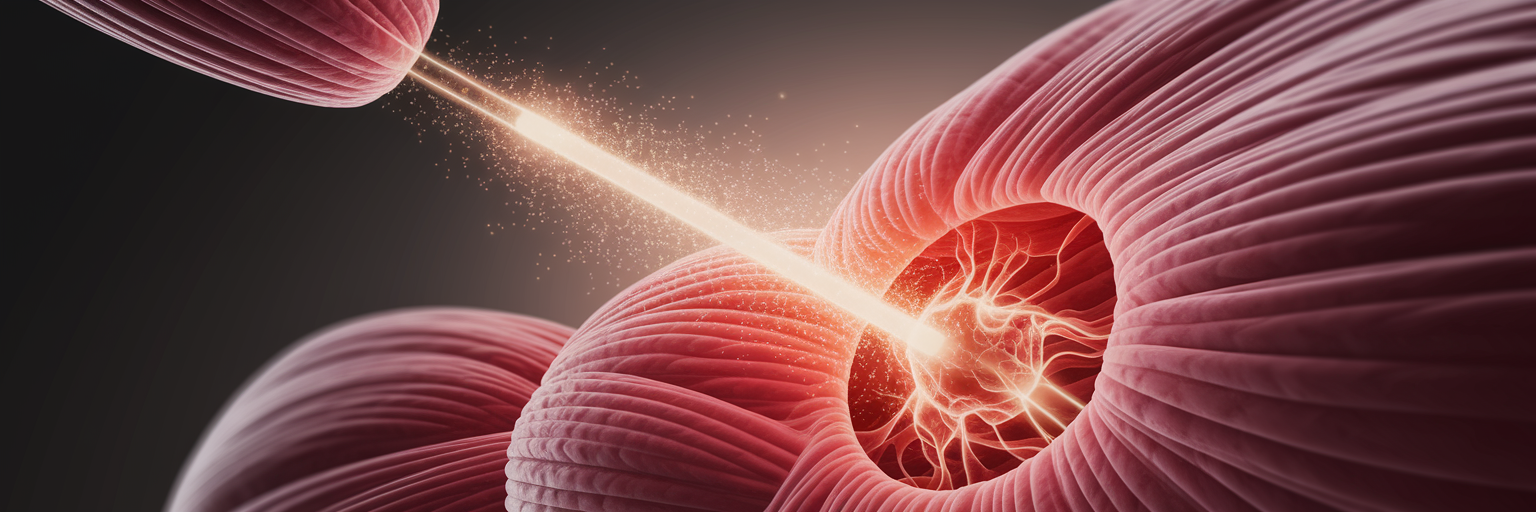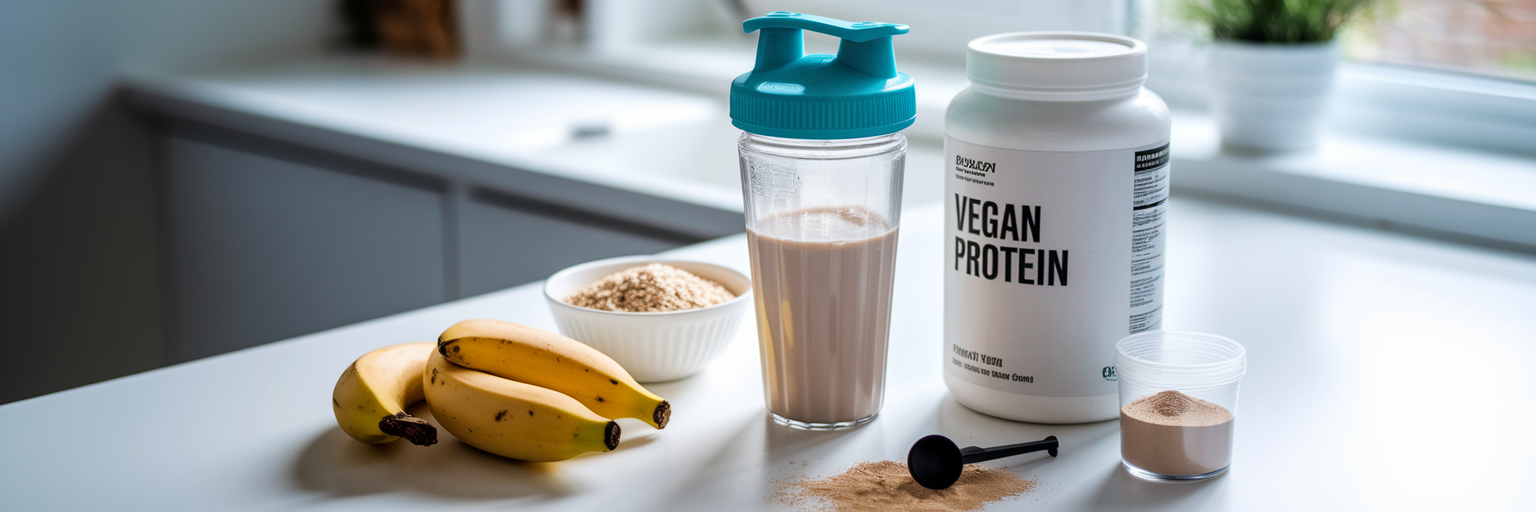Why Creatine Is a Non-Negotiable for Plant-Based Athletes
Because creatine is primarily found in animal tissues, vegan athletes naturally start with a different baseline. This isn't a disadvantage. Instead, it presents a significant opportunity for improvement, making creatine supplementation a strategic tool for plant based muscle growth rather than just another add-on.
This "creatine gap" simply means that those on a plant-based diet often have lower intramuscular creatine stores. By supplementing, you can bridge this gap and supply your muscles with the fuel they need to perform at their best. Our experience shows that for dedicated vegan athletes, consistent creatine use is one of the most effective ways to support performance goals.
The benefits extend far beyond just muscle size. Creatine supplementation supports several key areas of athletic performance:
- Enhanced Strength and Power: Creatine helps fuel short, explosive movements. Think about that extra rep on the bench press or a more powerful start in a sprint. It directly contributes to the energy system that powers these efforts.
- Improved High-Intensity Capacity: It plays a vital role in regenerating ATP, the body's primary energy currency. This allows you to sustain high-intensity work for longer, whether you're lifting weights, cycling, or performing interval training.
- Cognitive Boost: A lesser-known but equally important benefit is its impact on the brain. Creatine can help reduce mental fatigue and support sharp focus, which is essential for athletes who need to make split-second decisions during competition.
Getting started is straightforward. A daily dose of 3-5 grams is all that's needed to achieve full muscle saturation over time. You can skip the complicated "loading phase" that many people talk about. This simple, consistent approach is both effective and easy to maintain. For those interested in the foundational science, we've shared more insights on its effectiveness that you might find helpful.
The Science of Creatine Absorption and Uptake

Once you take your daily dose, what actually happens inside your body? Understanding this process helps you make smarter choices about your supplementation routine. After you consume creatine, it gets absorbed into your bloodstream, with blood levels typically peaking about one to two hours later. Think of this as the prime delivery window when creatine is most available to be transported to your muscles.
Research from sources like the National Center for Biotechnology Information confirms this absorption timeline. But getting creatine into the bloodstream is only half the battle. The next step is getting it into your muscle cells, and that's where insulin comes in. Insulin acts like a key, unlocking the doors to your muscle cells so they can absorb creatine more efficiently. What triggers this insulin response? Carbohydrates.
This biological mechanism is why pairing creatine with a source of carbs is such a common recommendation. It’s not just a myth; it’s a way to optimize the transport process. This simple pairing ensures more of the creatine you take ends up where it's needed most. As a recent analysis by the National Center for Biotechnology Information highlights, co-ingesting creatine with carbohydrates can enhance muscle creatine accumulation.
For athletes who sometimes experience stomach discomfort with supplements, the form of creatine can also make a difference. Micronized creatine features smaller particles, which helps it dissolve more easily in water. This can lead to faster absorption and a gentler experience on your digestive system, making your daily routine that much smoother.
Pre-Workout vs. Post-Workout: Finding the Optimal Window
One of the most common questions we hear is about the best time to take creatine. Should it be before your workout or after? While there's a lot of debate online, the science points toward a clearer picture. The goal of this section is to weigh the evidence and give you a straightforward answer for your vegan athlete creatine timing.
The argument for post-workout timing is compelling. After exercise, your body is highly receptive to nutrients, and your muscles are ready to replenish what they've lost. Some research suggests that taking creatine post-workout may provide a slight edge for muscle growth and strength gains. A study published in the journal Frontiers in Sports and Active Living explored this very topic, finding that post-exercise supplementation could be more beneficial for increasing muscle mass.
On the other hand, some athletes prefer taking creatine pre-workout. The logic is to have it readily available to fuel the training session. While this might offer a psychological boost, creatine's primary benefits come from long-term muscle saturation, not an immediate, acute effect. Your muscles draw from the creatine stores you've built up over days and weeks, so the impact of a single pre-workout dose is likely minimal in the grand scheme of things.
So, what's the final verdict? Consistency is far more important than precise timing. Whether you choose pre-workout or post-workout, the most critical factor is taking it every single day to keep your muscle stores full. On rest days, take it anytime with a meal. Don't let the debate over the "perfect" window cause you to miss a dose.
| Timing Strategy | Primary Rationale | Potential Advantage | Key Consideration |
|---|---|---|---|
| Post-Workout | Capitalizes on the body's heightened nutrient absorption post-exercise. | May offer a slight edge for muscle hypertrophy and strength gains. | Pairs perfectly with a post-workout meal or shake containing carbs and protein. |
| Pre-Workout | Aims to increase creatine availability for the upcoming training session. | Psychological boost and ensures you've taken your daily dose. | Less evidence for superior results compared to post-workout, as benefits are cumulative. |
| Rest Day | Maintains muscle creatine saturation. | Ensures consistency, which is the most critical factor for results. | Take it at any convenient time, preferably with a meal containing carbohydrates. |
Note: This table summarizes the current scientific understanding. While post-workout may have a minor advantage, the most significant factor for achieving results is consistent daily intake.
Pairing Creatine with Vegan Foods for Maximum Impact

Now that we've covered the science, let's talk about practical application. Knowing how to take creatine vegan style is all about smart food pairings. Remember the "insulin key" we discussed earlier? Consuming creatine with carbohydrates helps open up your muscle cells for better absorption. This is where your plant-based diet gives you a huge advantage.
Here are some excellent vegan carbohydrate sources to pair with your daily creatine dose:
- Bananas or dates for a quick and easy insulin spike, perfect for a post-workout shake.
- A warm bowl of oatmeal for sustained energy and fiber.
- A post-workout meal featuring a sweet potato or a quinoa bowl to refuel and support recovery.
Combining creatine with a quality vegan protein source creates a powerful synergy for plant based muscle growth. The protein works to repair and build muscle tissue, while the creatine helps replenish energy stores and supports strength gains. It's a one-two punch for recovery and performance.
To make it even simpler, here is a go-to post-workout smoothie recipe that brings it all together:
- 1 scoop of our Chocolate Vegan Protein
- 1 ripe banana
- 1 cup of oat milk
- 5 grams of creatine monohydrate
Just blend and enjoy. This simple shake delivers everything your body needs to kickstart the recovery process. If you're looking for more inspiration, you can explore some of the other easy vegan protein recipes we've put together.
Common Creatine Mistakes Vegan Athletes Should Avoid
To get the most out of your supplementation, it's just as important to know what not to do. Avoiding these common mistakes will help ensure you see the results you're working so hard for.
- Inconsistent Supplementation: This is the biggest mistake we see. Creatine works by saturating your muscles over time. Skipping days, especially on a vegan diet where you're not getting any from food, undermines this entire process. Make it a non-negotiable part of your daily routine.
- Underdosing or Overdosing: More is not better. Taking less than the recommended 3-5 grams daily might not be enough to fully saturate your muscles. On the flip side, taking massive doses won't provide extra benefits and can lead to stomach discomfort and wasted money. Stick to the proven effective dose.
- Ignoring Quality and Hydration: Not all supplements are created equal. Look for third-party tested vegan bodybuilding supplements to ensure purity and avoid unwanted additives. For example, our creatine monohydrate is certified vegan and rigorously tested for quality. Also, remember that creatine draws water into your muscles, so staying well-hydrated throughout the day is crucial for absorption and performance.
By avoiding these pitfalls, you set yourself up for success. If you have more questions about getting started with our products, feel free to check out our FAQ page for more information.



